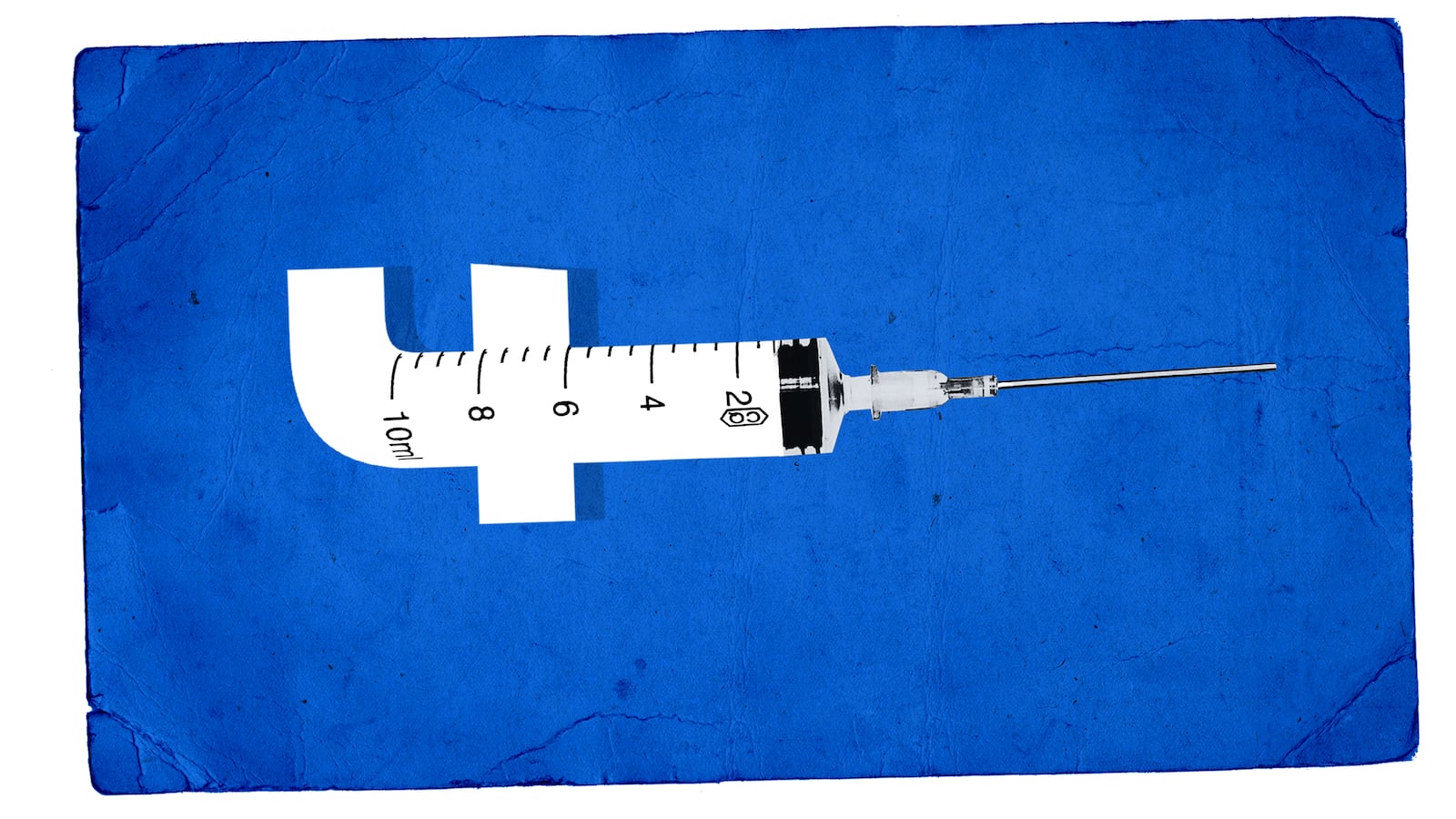Facebook promised to institute a stricter policy on anti-vaccination misinformation in ads back in February, a policy it expanded sitewide in March. That crackdown, however, appears to be penalizing some legitimate healthcare providers while letting some anti-vaccine conspiracies slide, even as the United States faces its largest outbreak of diseases preventable by vaccines in decades.
This month, the Idaho Department of Health and Welfare, the state’s official health department, bought 14 ads to promote a statewide program providing free pediatric vaccinations. Facebook removed all of them.
During the same time period, Children’s Health Defense, an anti-vaccine nonprofit founded and chaired by the nation’s most prominent vaccine conspiracy theorist, Robert F. Kennedy Jr., successfully placed more than 10 ads stoking unfounded fear about vaccines and other medical conspiracy theories. Some of the ads skirted around their intent, and some did not: One promised to reveal the truth about the “MMR Vaccine’s Poison Pill”—the commonplace vaccine against mumps, measles, and rubella. It reached between 10,000 and 50,000 people, and Facebook took in between $100 and $500 for the ad.
Another page promoted a link to a website called vaccineholocaust.org without issue in June. The group Michigan for Vaccine Choice, which advocates for exemptions from mandatory vaccines, is still running an ad that began mid-July. All of the ads draw ideas from a debunked web of conspiracy theories arguing that vaccines pose hidden dangers and the risk of “vaccine injury” means children should be denied potentially life-saving immunizations.
The Minnesota Hospital Association, which lobbies the Minnesota legislature on behalf of the state’s hospitals, buys Facebook ads to fight vaccine disinformation and promote conversations with healthcare providers about vaccines. Over the last two months, Facebook has removed dozens of their ads. Facebook flags the group’s advertisements referencing vaccines far more often than any of its other ad campaigns, which cover medical issues like mental illness, addiction, and vaping-related illnesses.
“It’s our understanding that auto-blocking software flagged these ads, since the text resembles when ads appear to be spreading vaccine misinformation,” said Emily Lowther, a spokeswoman for the Minnesota Hospital Association, who expressed frustration at the phenomenon.

Lowther said the association’s advertising agency reuploaded the vaccination campaign ads and requested secondary reviews, prompting a human Facebook moderator to determine if a campaign abides by the social network’s rules. Facebook accepted the ads after the second review, but only after human oversight overruled the algorithmic mistake, according to Lowther. A Facebook spokesperson described the ads as “incorrectly rejected,” noting that the platform overturned the initial determination.
Lowther described Facebook’s approach to ad moderation as fickle and inconsistent.
“It’s a moving mark what’s going to make it up and what’s going to get flagged. The systems they have in place are constantly changing. We often expect we’ll have to reupload ads,” she said.
Archived ads in Facebook’s Ad Library reveal an unpredictable approach to moderation. The social network blocked one Minnesota Hospitals ad that read, “MYTH: Vaccines will infect me with the disease I am trying to prevent” but allowed another with similar text: “MYTH: Vaccines cause autism.” Both led to the same webpage, which advised visitors to talk to their doctors about vaccinations.

The Pennsylvania Medical Society bought an ad in June to spread a campaign debunking common anti-vaccination talking points. It featured a link with the text “#vaccineswork.” Facebook took it down. A spokesperson said that removal was a mistake and that it was overturned after an inquiry from The Daily Beast. The Society did not respond to a request for comment.
Online anti-vaccine misinformation is an outgrowth of a real world public health threat: the World Health Organization identified vaccine hesitancy as one of the most significant dangers to global health in 2019. Due to swelling anti-vaccine sentiment, the U.S. may lose its designation as a nation that has eliminated measles.
Though the communities that oppose vaccines tend to be tight-knit and insular, Facebook ads allow them to extend their reach and target the people most susceptible to their message. A Daily Beast report published in February found ads targeting young women with anti-vaccine conspiracy theories that were viewed millions of times. Despite the company’s efforts, Facebook features like crowdfunding and private groups continue to fuel the fire of anti-vaccine sentiment both on and offline.
Anti-vaxxers are pushing back against Facebook through grassroots ad campaigns and at the highest levels of power. Rep. Bill Posey (R-FL) lambasted CEO Mark Zuckerberg in a congressional hearing Wednesday for removing anti-vaccine content. Zuckerberg cited scientific consensus on the topic, but Posey claimed the social network was silencing views unpalatable to its chief executive.
“If you look at the statistics, I think you’re making a bad mistake,” Posey warned.






